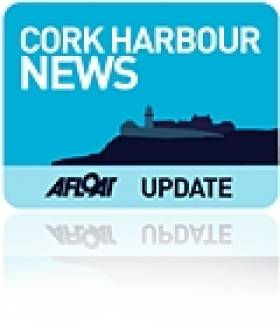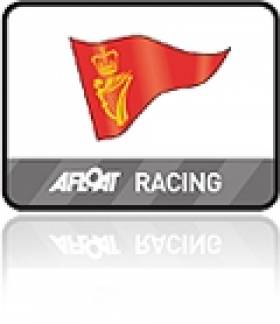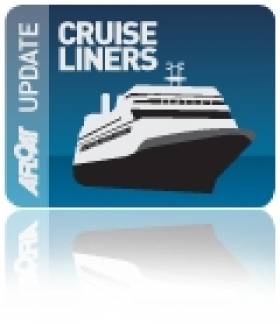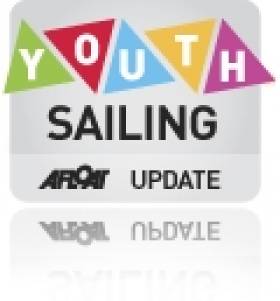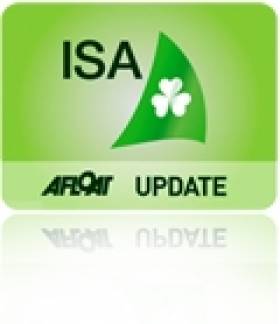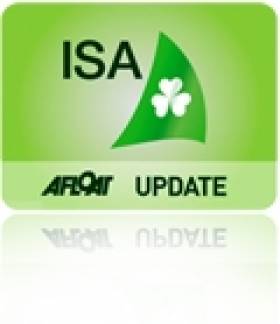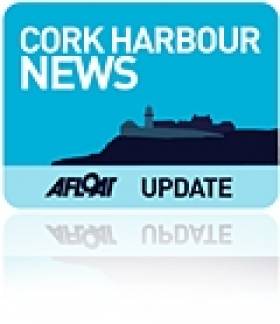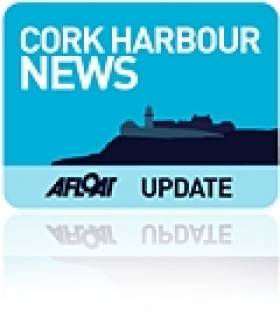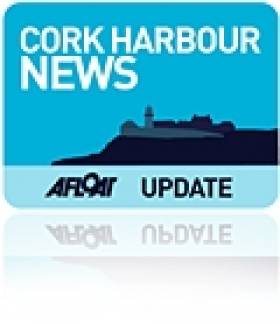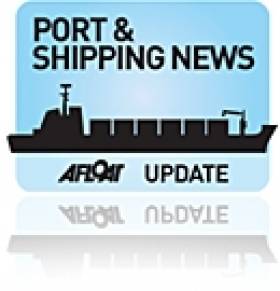Displaying items by tag: Cork Harbour
'Unauthorised' Harbour Moorings to be Removed
The Port of Cork intends to remove all unauthorised or illegibly marked moorings in Cork harbour this winter and has written to harbour users about the removal which will start next month.
The Port Company recently completed a detailed survey of all moorings within Cork Harbour. A number of unauthorised and illegibly marked moorings have been identified in the course of the survey. The Port says it is the responsibility of the mooring holder to ensure that their mooring is in the correct position and is clearly marked at all times with the correct mooring number. All unauthorised or illegibly marked moorings will be removed over the coming months commencing on the 1st day of November 2010.
The Port has asked Royal Cork Yacht Club to bring the matter, affecting all harbour users, to the attention of its members according to a post on the club website.
The post also says that all boats are requested to obey the speed limits in various parts of the harbour, particularly on their way to the new pontoon in the city. Boats travelling at excessive speed make life very difficult for other harbour users, particularly the members of the rowing clubs on the river.
1720s Ready for Cork Harbour October Contest
Ten 1720s will contest Sunday's first race of Royal Cork's October league in force. The 2010 league marks the return of these sports boat to Cork Harbour but it comes at the expense of the club's three Commodore's cup boats originally planning to take part.
At least two 1720s are entered by the O'Leary family which almost certainly means the Ker 39 Antix will stay on its berth. Peter O'Flynn from Baltimore is sailing and other 1720 entries have been received from Tom Durcan and Denis Murphy.
Following the successful Commodore's Cup campaign Marinerscove is now in the UK and Andrew Creighton has indicated the small boat Roxy will not be sailing.
There have been a few tweaks to the format of the league and this year there will be two courses both starting with committee boats.
Competitors from other south coast ports such as Waterford Harbour SC arrived in Crosshaven this week.
Course Zero, One and Two and 1720 designated as Red Fleet while classes three, four, Whitesail One and White sail Two will be designated Green Fleet and the classes will alternate between the courses each weekend.
Prizes will be awarded for first, second and third place in each class and a daily prize giving will take place no later then 17.30 hrs in the RCYC Club House. The final prize giving will take place at the prize giving gala dinner on Saturday, October 30th.
Azura Cruise Liner Docks in Cobh for the First Time
In another first for Cork Harbour the 115,000 ton Azura cruise liner docked in Cobh last Friday.
After her maiden voyage in April, Azura spent summer based in Southampton cruising to the Mediterranean, the Baltic and the Canary Islands. She'll be sailing the Caribbean in winter from Barbados.
She holds 3,100 passengers based on double occupancy (3,574 when all the berths are full).
At 290 metres long and 36 metres wide she looked an impressive sight on the Cobh quayside as our photos show below.
P&O Cruise's Azura is the company's latest cruise liner. Built at the Monfalcone shipyard in Italy, the Azura is one of P&O's largest ships, boasting 14 public decks, 11 restaurants, five boutiques, four pools, two lounges and over 900 private balconies. It also features an outdoor cinema, a first for the company, along with an al fresco spa and single staterooms.
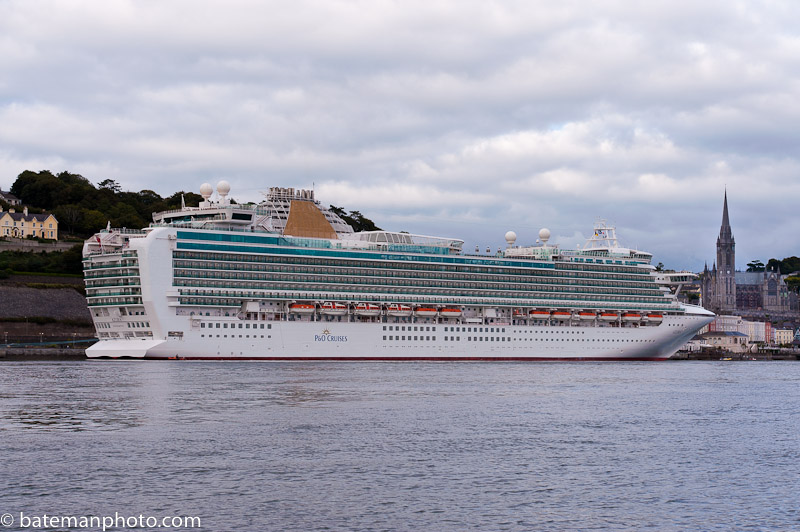
Above and below: two views of the new Azura berthed in Cobh last Friday. Photo: Bob Bateman
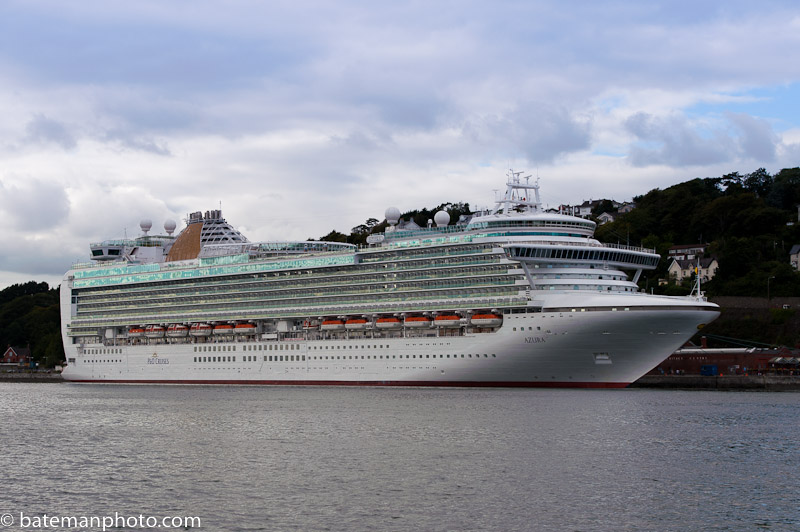
Doran Reigns In Junior All Ireland Event
It was a very long day of sailing in very light conditions for the Juniors on the second and final day of the All Ireland Junior Championship writes Claire Bateman. PRO Richard Leonard raced the fleet on the Curlane Bank in Cork harbour and was very fortunate to be able to get in three races in extremely difficult conditions.
The final result saw Philip Doran of Courtown Harbour SC taking first place with Rory Lynch of of Blessington Sailing Club second and Ross Vaughan of
Royal North of Ireland YC third.
In the Girls Fleet Sophie Murphy of Quoile YC took first place with Emma Geary of RCYC second and Katherine Geoghegan of Dungarvan Harbour SC third.
Photos of the Junior All Ireland Prizegiving and competition by Bob Bateman HERE.
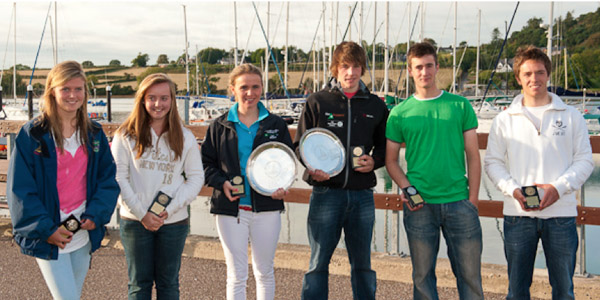
All Ireland Final Date Yet to be Agreed
Eight helmsmen, including the double winner Nicholas O'Leary will be invited to participate in a new final consisting of five races. The eight finallists are
Anthony O'Leary
Neil Kenefick
Nicholas O'Leary
Garrett May
Niall Henry
James Espey
Nick Walsh
Ewen Barry
Forum Discussion HERE
All Ireland Championships Abandoned Due to Lack of Wind
Lack of wind in Cork harbour forced the abandonment of the All Ireland sailing championships this afternoon. Although each flight had been able to sail two rounds since the competition began on Friday the invited class champions had a long wait for wind before Royal Cork organisers scrubbed the event at 4p m today. The Irish Sailing association say the event will be rescheduled. Discussion on the forum HERE.
Spike Island Revisited
It's unclear how Spike Island, now a tourism and heritage site, will be marketed says Mary Morrissy in today's Irish Times HERE
Cove SC Prepares for SCORA Championships
Cork Harbour Town Welcomes Over One Million Visitors
Minister for Enterprise, Trade and Innovation Batt O'Keefe TD told Cobh and Harbour Chamber of Commerce last week that over one million visitors had come to Cobh in the past year and how the famous port had played a vital part in tourism for Cork harbour. Cobh is the deepwater port for visiting cruise liners and a centre of excellence for angling holidays. More from Cobh Edition HERE.
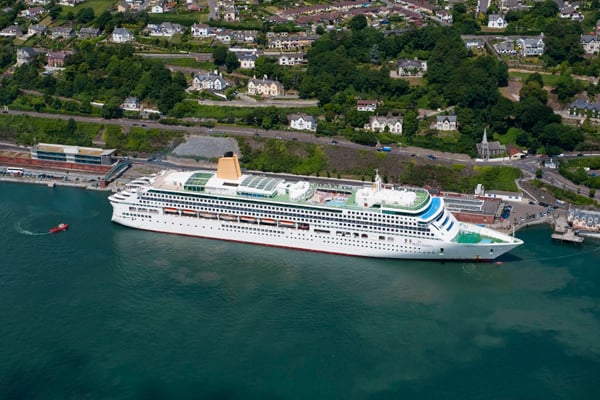
Fastnet Line Exceed Expectations
Fastnet Line recorded carrying over 60,000 passengers up to the end of August since the Cork-Swansea route re-opened in March, served by the 21,699 tonnes M.V. Julia, writes Jehan Ashmore.
Commenting on the inaugural season, Paul O'Brien, general manager of Fastnet Line said figures were ahead in June, July and August by an average of 10%. Over 13,000 passengers were carried during July and 15,000 in August on the 10-hour service.
Businesses in the south-west region have reported increased tourism activity and is it from here and in south Wales that many of the shareholders have invested to form the West Cork Tourism Co-operative, which runs Fastnet Line. In 2006, the previous operator of the route, Swansea-Cork Ferries closed the service after selling their vessel, the Superferry to interests abroad.
Marketshare between Ireland and UK passengers appears to be evenly split with the tourist gateway to south-west Ireland proving particularly
popular with Londoners reaching Swansea using the M4 motorway. Motorists can save over 600km /370 miles on the direct round trip compared to alternative ferry routes between Rosslare and Pembrokeshire ports.
During the first two months of operation, booking revenues were in excess of £3m (sterling) alone, with over 15,000 passengers using the 1,860 capacity and freight-ferry, Julia. Unsurprisingly there was a 100% boost in April bookings arising from travel disruption caused by the Icelandic volvanic ash-cloud.
The year-round overnight service operated eight sailings weekly in the high season and is now down to six. Notably there are no Monday sailings as Julia spends a lay-over period at the Ringaskiddy ferry terminal in Cork.
The freight market will continue to be important factor during the offseason with the British Bermuda flagged Julia capable of loading 40 trucks or trailers. As for passengers, Fastnet are promoting short-break and mini-cruise offers only on sailings up to December 21st.



























